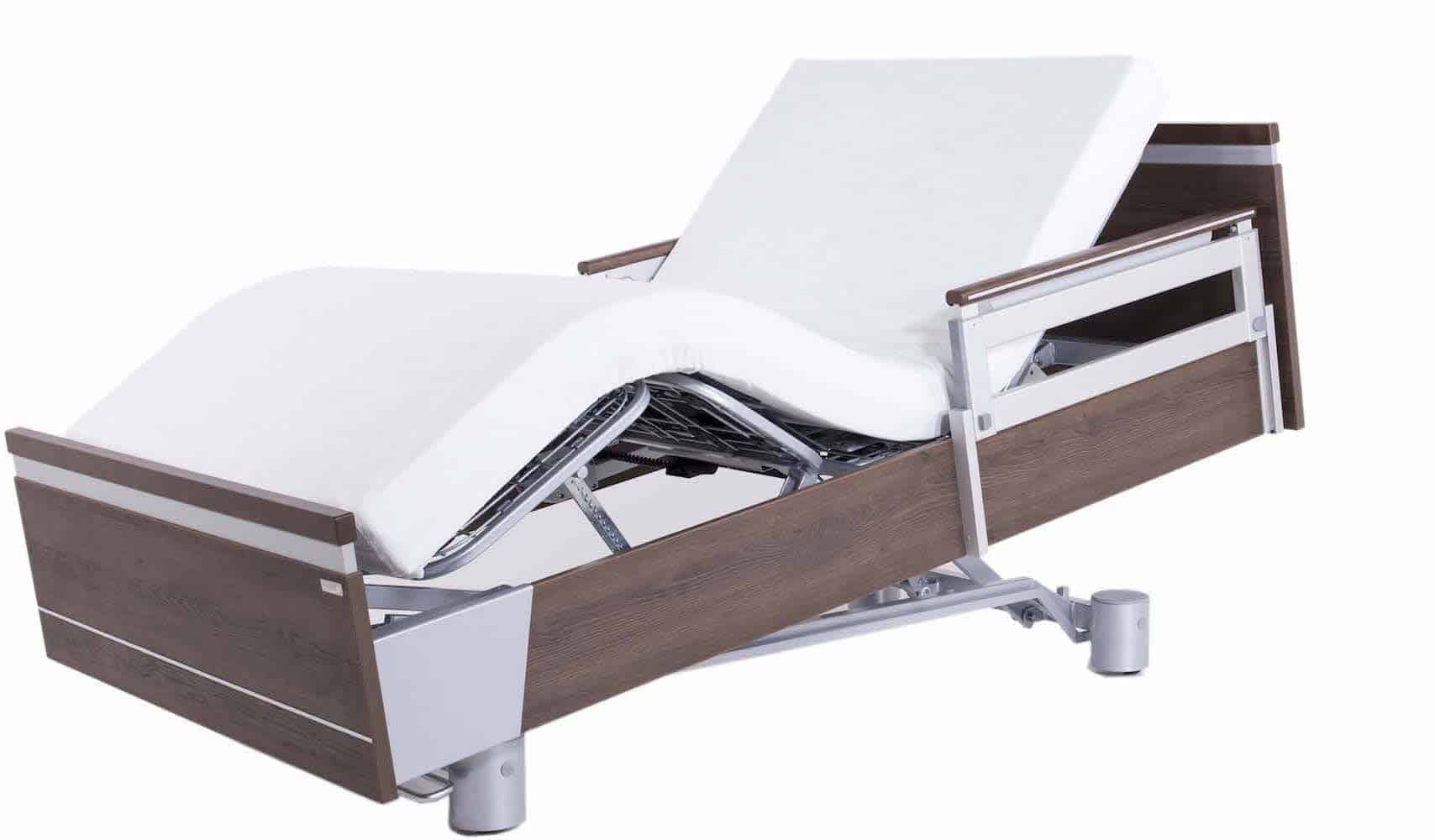Conditions That Require Frequent Repositioning In A Bed
Many medical conditions, especially cardiovascular illnesses, require the patient to change their position in ways they can’t achieve in an ordinary bed. These can include chronic obstructive pulmonary disease (COPD), and patients with severe cardiac conditions who can leave the bed but must avoid physical strain can also qualify for hospital bed coverage. These patients may need to have the head of the bed elevated more than 30 degrees due to their medical issues, but this usually comes after the doctor considers pillows or wedges and rules them out.
Hospital beds are specially designed to let users adjust their head and feet when needed, changing the pressure points and improving their body’s circulation. Qualifying for a hospital bed can depend on the severity and frequency of the symptoms that necessitate an adjustable model. If the reason for needing a hospital bed is that the patient’s condition requires frequent repositioning, the prescription and documentation must describe the medical condition.
Mobility Problems That Are Improved With A Hospital Bed
Many mobility problems can qualify people for hospital beds under their healthcare plans. These include:
- Patients with severe arthritis;
- Those with injuries to lower extremities, like a fractured hip;
- Patients with spinal cord injuries, including quadriplegic and paraplegic patients;
- Multiple limb amputees;
- Stroke patients; and
- Patients who must transfer from bed to a wheelchair, with or without help.
Many of these conditions make the variable height feature of a hospital bed a medical necessity. When a patient with debilitating diseases and conditions can control the height of their bed, they can get in and out more easily and without caregiver assistance. Conditions like arthritis can require this feature to allow the patient to ease up off the mattress, enabling them to place their feet on the floor while sitting on the edge of the bed.
Conditions That Require Caregiver Monitoring In A Hospital Bed
Doctors will often prescribe a hospital bed when a patient requires in-home care. These often include conditions that require monitoring and attention, such as cognitive impairments like dementia. An adjustable hospital bed can make it easier to feed, bathe, and entertain patients immobilized by their condition. A hospital bed will often include side rails which can be used as assistive devices for getting into or out of bed.
However, for many diagnoses, a medical bed in the home or care facility is more than just a place for rest for the patient – it’s important for their independence. Requiring caregiver monitoring does not rule out autonomy. When appropriate, a hospital bed’s rails can be adjusted to various heights, providing stable and secure locations for patients to use to get themselves out of bed and continue their routines without professional assistance.
What Type Of Hospital Bed Will Medicare Or Government Healthcare Cover?
Government health plans such as Medicare will typically cover a portion of a very basic semi-electric hospital bed, which means that one or more functions of the bed must be operated with a hand crank. Occasionally, your supplemental insurance plan may also cover a portion.
Regardless of where you are, we no longer live in an era with bulky, unintuitive, corroded hospital beds with uncomfortable broken spring mattresses. SonderCare provides beds that improve the way people receive their care in private residences, right down to the mattresses and sheets. A proper hospital bed system can help patients with the above-mentioned conditions when they must rest for recovery and need a good night’s sleep.
The eligibility for a home hospital bed varies depending on the specific medical condition and the patient’s individual circumstances. For heart failure and community-acquired pneumonia, Santos-Eggimann (2001) found that while a significant proportion of patients were medically eligible, the acceptance of home hospital programs was low. Salazar (2009) demonstrated the effectiveness and safety of a home hospitalization unit for acutely ill patients, particularly those with chronic obstructive pulmonary disease, chronic heart failure, and pneumonia. Júnior (2010) emphasized the need for specific equipment, such as a versatile hospital bed, to support home care. Pian (2020) proposed a new model of pediatric home hospital care, suggesting that certain acute illnesses, including pneumonia, could be managed at home with appropriate support. These studies collectively suggest that a home hospital bed may be suitable for patients with specific medical conditions, particularly those with chronic illnesses or acute exacerbations, and when there is adequate support and equipment available.
- Heart failure and community-acquired pneumonia: cases for home hospital? B. Santos-Eggimann, N. Chavaz, T. Larequi, O. Lamy, B. Yersin
International Journal for Quality in Health Care - Home hospitalization unit: an alternative to standard inpatient hospitalization from the emergency department. A. Salazar, C. Estrada, R. Porta, M. Lolo, S. Tomás, M. Alvarez
European journal of emergency medicine - [Hospital bed project for home care]. A. S. Silva Júnior, M. B. Posso, Laurentino Corrêa de Vasconcellos Neto
Revista da Escola de Enfermagem da U S P - Acute Pediatric Home Hospital Care Julia Pian, J. Klig Pediatrics
Frequently Asked Questions About Hospital Bed Qualifications
Introduce the patient and the length of time they have been under the physician’s or facility’s supervision. Describe how the present bed does not adequately safeguard the user, and how a fall will result in physical harm.
A home hospital bed can be paid for in a variety of ways. Out-of-pocket payment is the most convenient choice and will allow your loved one to enjoy a quality bed and sleep experience. In most cases, though, private insurance, Medicare, Medicaid, and VA health benefits will pay at least a fraction of the expense and often times you must settle for manual or semi-electric beds.
Ask your physician if they could examine you and write you a recommendation for the bed. The bed may be required and beneficial for your medical treatment. After that do a quick Google Search and look for a quality company like SonderCare and reach out to a representative.

















